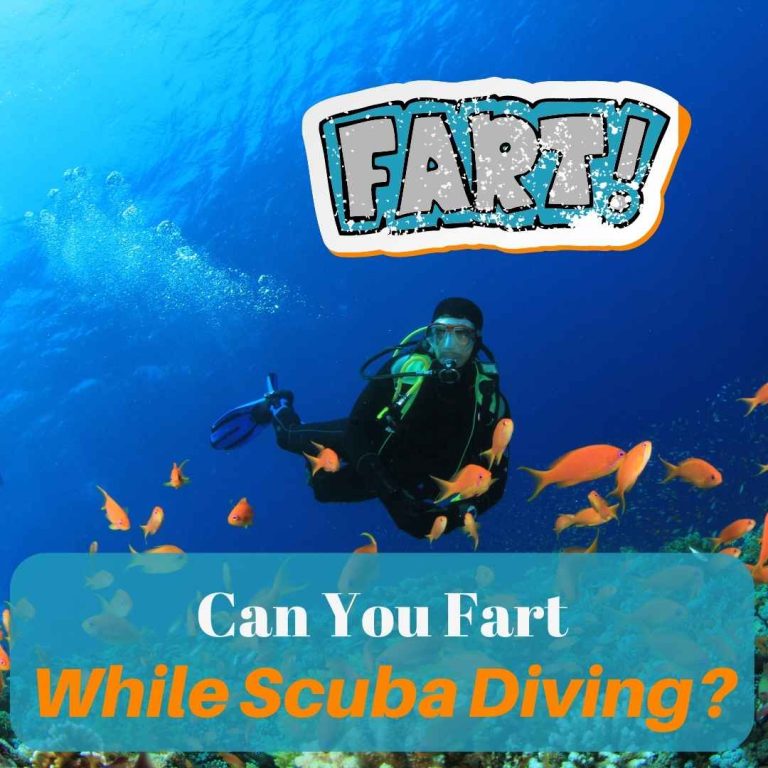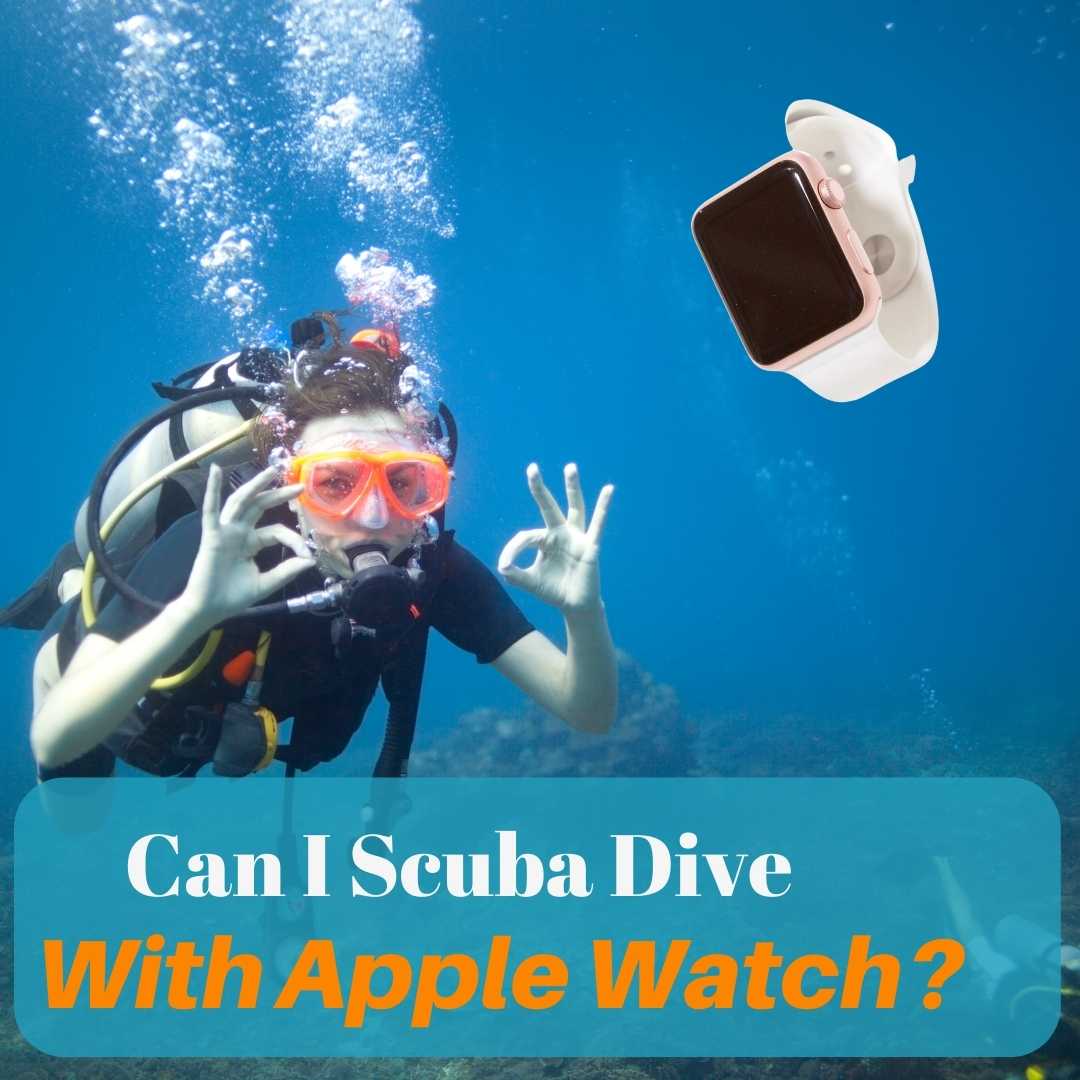As hard as it is to admit, everybody farts. Girls, boys, your cute cat or dog. We all have to rip one from time to time.
Some are loud and smelly, others are undetectable, but the fact is, our bodies have to release the gas buildup – and we can’t control it.
So, what do you do when you need to fart underwater while scuba diving? Do you hold it in or let it go?
You can fart underwater, even when you’re wearing your wet- or drysuit. However, because of the way the complicated law of physics and pressure works, you won’t feel the need or even be able to fart per se after reaching a certain depth.
Keep reading to find out more!
Table of Contents
So, Can You Rip One While Diving?

Yes. If you feel the need to let one rip, do it and go on enjoying your dive without feeling discomfort. However, the thing is that you have to do so before reaching a certain depth.
Why does depth matter? Because the deeper you go, the higher the pressure.
As pressure increases, the gas in your gut will compress, meaning you won’t have to fart. We have found different research papers pointing at different numbers, and we’ll list both ranges for full transparency.
Some researchers found that after reaching the 7.5m (or ~24.6ft) depth, the increase in pressure and gas compression will make it very hard to fart. However, at this depth, you are still able to fart if enough gas was built up in your body. After reaching a 10m or (~32.8ft) depth, it will be almost impossible for your body to release the gas a.k.a. fart.
Other research points to 20m (~65.6ft) as the depth at which it is impossible to fart in the usual way we think about it.
What Happens if You Fart Deep Underwater?
You won’t be able to fart when you’re very deep underwater (more than 10m or 32.8ft depth), because the gas in your gut will compress to a level that will make it impossible to rip one.
If you have to fart and you’re above the 10 meters threshold, then it is possible to do so. When you let one out at this depth, the following will happen:
The fart bubbles (gas) will decompress and become bigger as they go upwards. You know how air bubbles are smaller when they come out of your body and are close to you, and then grow in size as they go up? The same thing will happen with your farts
There won’t be any smell by the time your gases reach the surface, and in most cases, they won’t even reach it
Your dive buddy might notice the unusual bubble coming out of your wetsuit, and they might even catch that on a camera
So, as you can imagine, nothing serious happens if you fart underwater. There is no danger to your health or dive experience.
Also Read: Does Scuba Diving Make You Poop?
What Happens When You Fart in A Wetsuit?

Source: 9Gag.com
The gas released from the fart will be trapped in your wetsuit for a while, and then find its way out eventually in the form of small bubbles. In terms of smell, there shouldn’t be any smell left in your wetsuit after a typical 45-minute dive, contrary to what all the other online pages say.
Farts don’t change their smell or composition underwater, so you shouldn’t expect the smell to remain there forever.
What Happens When You Fart in A Drysuit?
A drysuit, at its core, is very similar to a wetsuit in the way it contains gas in the suit and dumps or adds gas as needed for your buoyancy.
So the result of farting in a drysuit will be the same as farting in a wetsuit – the gas will be trapped in the suit for a bit, but as you dump gas using your BCD, the fart gas will eventually find its way out.
Does Scuba Diving Make You Gassy?
Yes, due to the reasons we’ll mention below, scuba diving does make you gassy.
As you may know, gas buildup can occur when:
- You consume sparkling or carbonated drinks
- You eat gas-producing products like legumes or beans
- You smoke
- You chew gum
- Gas buildup occurs when you swallow air, which happens pretty much all the time. When you inhale, you swallow some air. When you eat, smoke, or drink too.
Other than swallowing air, some foods and beverages cause a higher production of gas in your gut.
You might think that none of the above have anything to do with scuba diving, but what about the oxygen you breathe underwater?
All of these can result cause gastric squeeze.
What Is Gastric Squeeze?
Gastric squeeze (gas in the gut) can occur in scuba divers as air and gas in the body swells while descending and can collect in the gut and expand during ascent in the abdominal lumen. Symptoms and signs of abdominal squeeze are
Gastric squeeze (sometimes called simply “gas in the gut”), happens when the air and gasses compress while descending, and expand during the ascent, causing a feeling of abdominal fullness and other symptoms.
To avoid gastric squeeze, avoid:
- Chew gum before diving
- Drinking carbonated drinks before diving
- Eating, especially beans and legumes, right before diving
- Smoking before diving
- If you do experience gastric squeeze symptoms as you ascend – stop ascending and vent the gas. Then keep ascending a bit more and see how you feel, if you feel gassy again, keep venting gas and slowly ascending.
Also Read: Does Scuba Diving Take Years off Your Life?
How Does Farting Affect Buoyancy?
All scuba divers know that controlling buoyancy is crucial. Hell, we even have a special piece of equipment just to control that – Buoyancy Control Devices.
So, how do farts affect buoyancy? Well, they don’t. Let me explain.
Technically, farts will remove gas from your body, thus reducing your buoyancy. But in reality, the impact is negligible and impossible to feel or measure. A study conducted in 1997 found that a fart’s volume can range from 17ml to 375ml [1]. To put that into perspective, we can breathe in up to 3 liters of air with a deep breath – and we always breathe underwater.
Conclusion
Hopefully, now you have a better understanding of how farting works while scuba diving.
To summarize, you can fart underwater if you feel the need to. But because the gas compresses as we go deeper, it will be hard or impossible to fart after reaching 10 meters (~32.8 feet) in depth.
You may also like: Does scuba diving burn calories?




